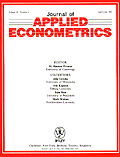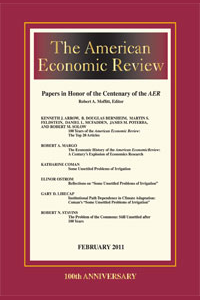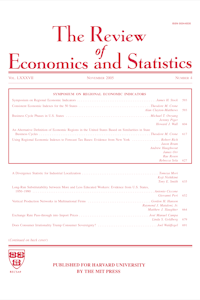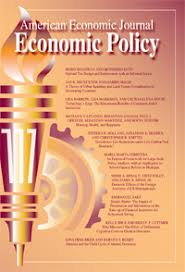
Harvey, A. C. and Thiele, S.
Co-integration and Control: Assessing the Impact of Events Using Time Series Data
Journal of Applied Econometrics
Vol. 36 pp. 71-85 (2020)
Abstract: Control groups can sometimes provide counterfactual evidence for assessing the impact of an event or policy change on a target variable. Fitting a time series model to target and control series offers potential gains over a direct comparison between the target and a weighted average of the controls. More importantly it highlights the assumptions underlying methods such as difference in differences and synthetic control and in doing so suggests ways in which these assumptions may be tested. Our focus is on time series models that are both simple and transparent. Potential gains from fitting such models are analysed and their relative performance is investigated using examples taken from the literature, including the effect of the California smoking law of 1988 and German re-unification. At the same time, some of the draw-backs to current methodology become apparent. It is argued that a time series strategy for the selection of a valid set of controls is to be preferred to one based on data-driven regression methods.
Keywords: common trends, difference in differences, intervention analysis, stationarity tests, synthetic control, unobserved components
Author links: Andrew Harvey
Publisher's Link: https://doi.org/10.1002/jae.2802 ![]()
Cambridge Working Paper in Economics Version of Paper: Co-integration and Control: Assessing the Impact of Events Using Time Series Data, Harvey, A. C. and Thiele, S., (2017)



